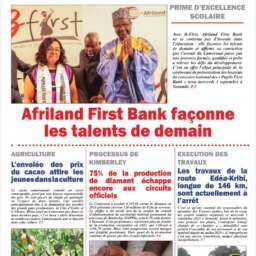(Business in Cameroon) – The Cameroonian government’s decision in 2019 to declare the North-West, South-West, and Far North regions as economically distressed zones is beginning to pay off. According to Finance Minister Louis Paul Motazé, speaking in Buea on January 15 during the launch of the 2025 state budget, nearly 16,000 jobs are being created in these regions thanks to tax and customs incentives tied to their special status.
“The tax benefits granted to companies investing in these distressed zones have led to the approval of 33 businesses in the North-West, South-West, and Far North regions. These investments are projected to total CFA168 billion and create 15,649 jobs,” Motazé announced.
The status of economically distressed zones, assigned to these regions by a prime ministerial decree on September 2, 2019, offers businesses a special tax regime. This setup is similar to the 2013 private investment promotion law, revised in 2017. New investments in these regions enjoy exemptions from certain taxes, including value-added tax (VAT) on goods and services, corporate income tax, and minimum tax. These exemptions can last up to 10 years, covering up to three years for the installation phase and the first seven years of operation.
The Far North region has faced repeated attacks from the Nigerian Islamist group Boko Haram since 2013, severely damaging its already fragile economy. Meanwhile, unrest erupted in the North-West and South-West regions in late 2016 following protests by Anglophone lawyers and teachers. By 2017, these grievances had escalated into separatist movements, leading to ongoing clashes between the military and separatist fighters.

































